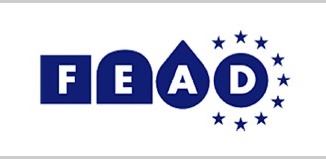In the pursuit of a stronger commitment towards concrete measures, FEAD nevertheless signs the Circular Plastics Alliance’s Declaration which aims to ensure that 10 million tonnes of recycled plastics a year will be used to make products in Europe by 2025.
FEAD joined the Circular Plastics Alliance in February 2019 and is looking forward to further promoting the use of more recycled plastics in Europe. By signing the Circular Plastics Alliance’s Declaration, FEAD will bring its expertise and input to the discussion table in order to continue integrating the private waste management industry’s views in the Alliance’s work, and to push for the development of a high-quality recycled polymers market.
FEAD will nevertheless continue advocating for concrete and strong measures such as mandatory green public procurement, binding recycled content in certain products, reduced VAT for products composed of recycled content, and eco-design.
According to Jean-Marc Boursier, FEAD’s President: “Such instruments are able to deliver strong market signals, as demonstrated by the adoption of mandatory recycled content in plastic bottles in the recently adopted SUP Directive, even if the latter has not even come into force yet! At a time where exports of sorted materials are questioned, a shock on demand in Europe is still needed for all plastic waste streams to ensure a high collection and plastic recycling rate.”
FEAD would like to emphasise the crucial importance of “Design for Recycling”. FEAD’s members identify an urgent need to steer the eco-design choices in the pursuit of reducing the complexity and costs of end-of-life products’ treatment and ensure 100% safe recyclability. Legally binding provisions related to the eco-design of products are key to achieving systematic and significant progress.
In parallel to the work within the Circular Plastics Alliance, our industry will continue to advocate for more binding measures related to:
- Pull measures for boosting the demand of quality secondary raw material, such as green public procurement and mandatory recycled content in certain products
- Mandatory rules for Eco-design
Finally, instruments which will allow for the internalisation of negative environmental externalities and for incentives linked to positive externalities must be urgently developed at EU level. This new term is the European Union’s last chance to move quickly in this direction.
Source: FEAD






